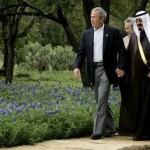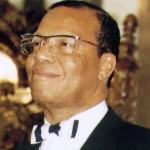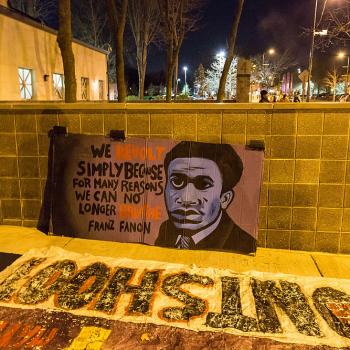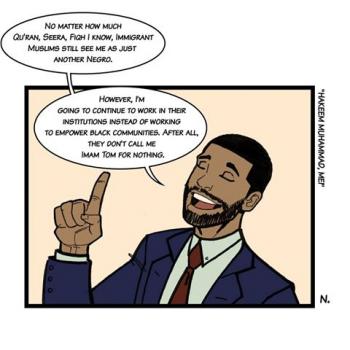
Imam Warith Deen Muhammad returned from hajj in 1977 and delivered a speech to his community. This period was a turbulent time for many African-American Muslims as it marks two years after he passing of the Honorable Elijah Muhammad. With the passing of his father still fresh on his follower’s minds, Imam W.D Muhammad stated, “As long as I am on earth, no one can forget the Honorable Elijah Muhammad. I am his own flesh and blood son. I am the man that he pointed to when I was too young to understand myself.”As the new leader of the Nation of Islam(NOI), Imam. W.D Muhammad evokes the former spokesmen of the NOI stating:
Minister Farrakhan himself said many times that Wallace D. Muhammad was the one whom we always thought would become the leader after his father. Many times he said this. Malcolm X in his autobiography, he didn’t hide that. He said that the Hon. Elijah Muhammad said Wallace Deen Muhammad would come into leadership. Read the autobiography of Malcolm X.
Having been selected as the new leader of the Nation of Islam, he according to Clifton E. Marsh, “changed the most powerful and feared black nationalist group into an Orthodox Islamic religion.” Under his leadership, the NOI became known as the World Community of Islam in the West. Imam W.D Muhammad credits the egalitarian principles of Islam for being able to bring together members of the former Nation of Islam with Caucasian Muslims at hajj,”This is the power of Allah and his word Qu’ran and the message that Prophet Muhammad gave to the world. It is stronger than any artificial thing that the world can produce. There we saw the oneness of man all coming and obeying one God.” Referring to racism, classism, and materialism, Imam W.D Muhammad stated that hajj is, “designed to destroy these evils.” With racial and socio-economic disparities widespread, Muslims must work to eradicate these evils in society.
Next: Louis Farrakhan.












